introduction
Recently, anime with themes of “other worlds” or “reincarnation” has surged in popularity, capturing not only Japanese audiences but fans around the globe.
But why are these themes so prevalent in anime?
This article explores the reasons behind this trend, helping readers gain a deeper understanding of what makes these anime so appealing, especially in the context of Japanese society and culture.
1. Freedom in Storytelling
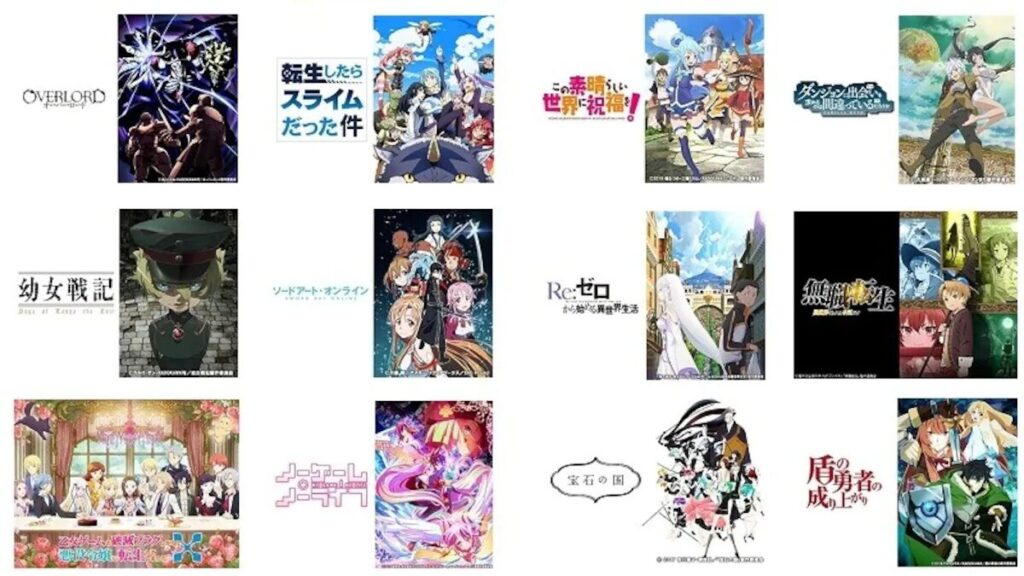
By setting stories in a different world or revolving around reincarnation, creators gain freedom from real-world constraints, allowing them to craft unique settings and rules.
- Variety of settings: Creators can set up completely new worlds and rules without the constraints of the real world, allowing creators to use their imagination to the fullest. Creating worlds that combine various elements such as magic, monsters, and oddly shaped creatures can provide fresh surprises and fun for viewers.
- Character Growth: Other-worldly settings provide a stage where characters can start from scratch, making it easier to depict their journeys of growth and development. Stories of ordinary individuals gaining special abilities or discovering new ambitions resonate strongly with viewers, offering inspiring tales of transformation.
2. Reflecting Viewers’ Aspirations
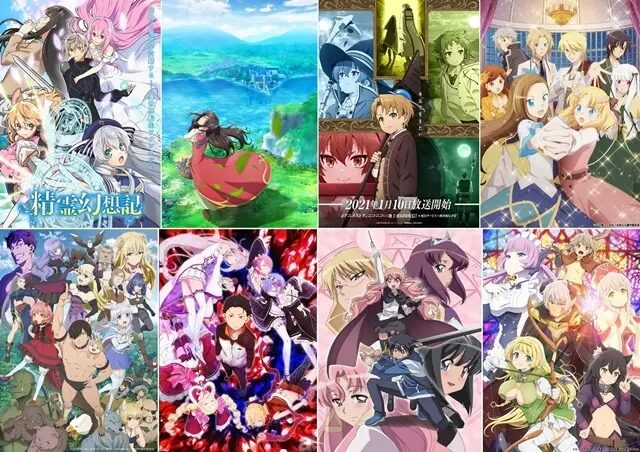
Themes of reincarnation and other worlds tap into the audience’s inner desires, allowing for a break from the pressures of daily life and fulfilling their hidden aspirations.
- Escaping Reality: In Japan, where the pressures of work and education are particularly high, many people experience daily stress. For them, stories set in other worlds offer an escape, a way to unwind, and a welcome departure from the constraints of reality.
- Becoming an Ideal Self: The appeal of realizing dreams and ambitions that feel unattainable in real life is also a major draw. For example, characters who feel underappreciated might become the strongest mage in another world, while reserved personalities may find themselves leading others with newfound confidence. These scenarios satisfy viewers’ deeper desires and offer an exciting glimpse into a life where they can become their best selves.
3. Entertainment Value
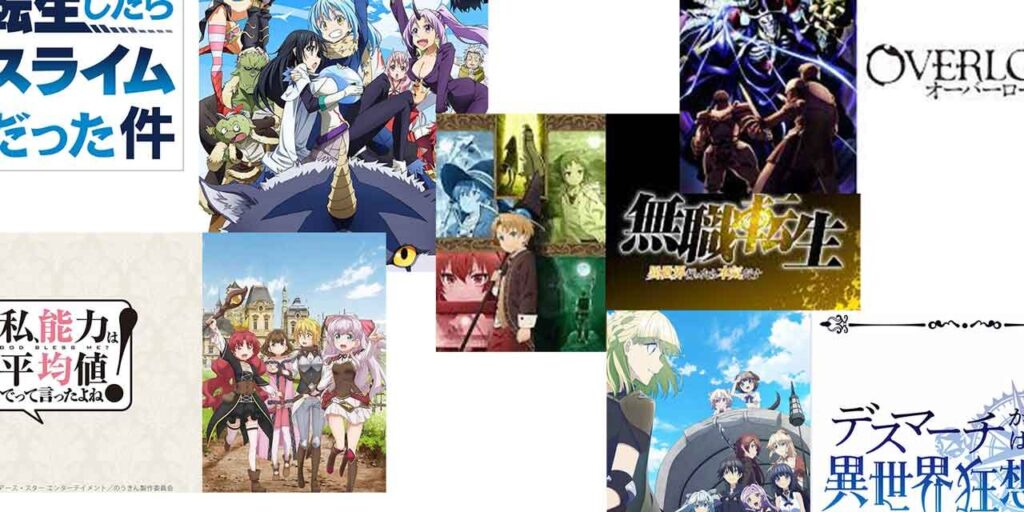
The unpredictability and unique storytelling opportunities of other-world and reincarnation settings keep audiences engaged and entertained in ways other genres may not.
- Unpredictable Plot Developments: The unpredictability of other worlds and reincarnation makes it hard for viewers to guess what will happen next, keeping them on their toes and hungry for more.
- Blending Multiple Genres: Since isekai themes combine easily with romance, action, fantasy, and more, they appeal to a broad range of viewers and provide a platform for diverse storytelling.
4. Industry Trends and Popular Demand
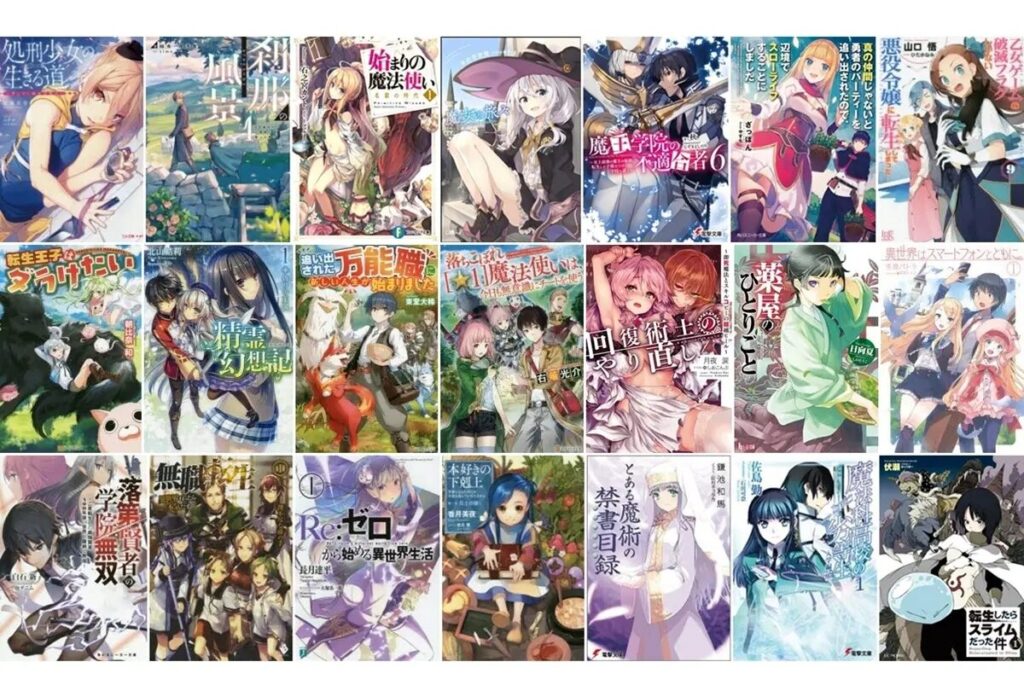
The prevalence of isekai and reincarnation anime can also be attributed to the anime industry’s dynamics and audience demand.
- Abundance of Source Material: Light novels and manga focusing on these themes are widespread, making it easier for studios to produce anime based on popular works with an existing fan base.
- Meeting Audience Demand: As interest in isekai and reincarnation has grown, studios continue producing these anime to meet fan expectations, tapping into a ready-made audience that keeps growing.
5. Cultural and Social Factors in Japan

The popularity of isekai and reincarnation themes in Japan also reflects aspects of Japanese culture and society.
- Buddhist Views on Reincarnation: With Buddhism’s influence in Japan, ideas of rebirth and the afterlife are familiar concepts, making stories of reincarnation feel natural and intriguing to audiences.
- Folktale and Traditional Stories: Japan has a long tradition of folktales about journeys to other worlds, like the tales of “Momotaro” and “Urashima Taro.” This cultural heritage makes isekai themes familiar and enjoyable for Japanese viewers.
- Empathy for Personal Growth and New Beginnings: In Japan, where social roles and expectations strongly shape one’s identity, there’s a shared understanding and longing for a fresh start. Stories of characters who reset their lives and grow from scratch resonate with these feelings.
- Expression Constraints and the Desire to Discover One’s True Self: Social norms and etiquette in Japan often encourage people to hold back on individuality or self-expression. This makes the freedom that protagonists find in other-world settings feel especially relatable. The theme of “discovering one’s true self” or “living without judgment from others” resonates deeply, as these fantasy worlds allow characters to be unapologetically themselves, free from societal pressures.
Conclusion
Reincarnation and other-world themes have become so common in anime due to their storytelling flexibility, ability to reflect viewers’ desires, entertainment value, industry trends, and unique cultural and social factors in Japan.
These elements combine to make isekai and reincarnation a major genre in anime, captivating fans worldwide.
Understanding the background of these themes adds a new layer to appreciating these stories, revealing the meaningful connections between the fantastical and the everyday.
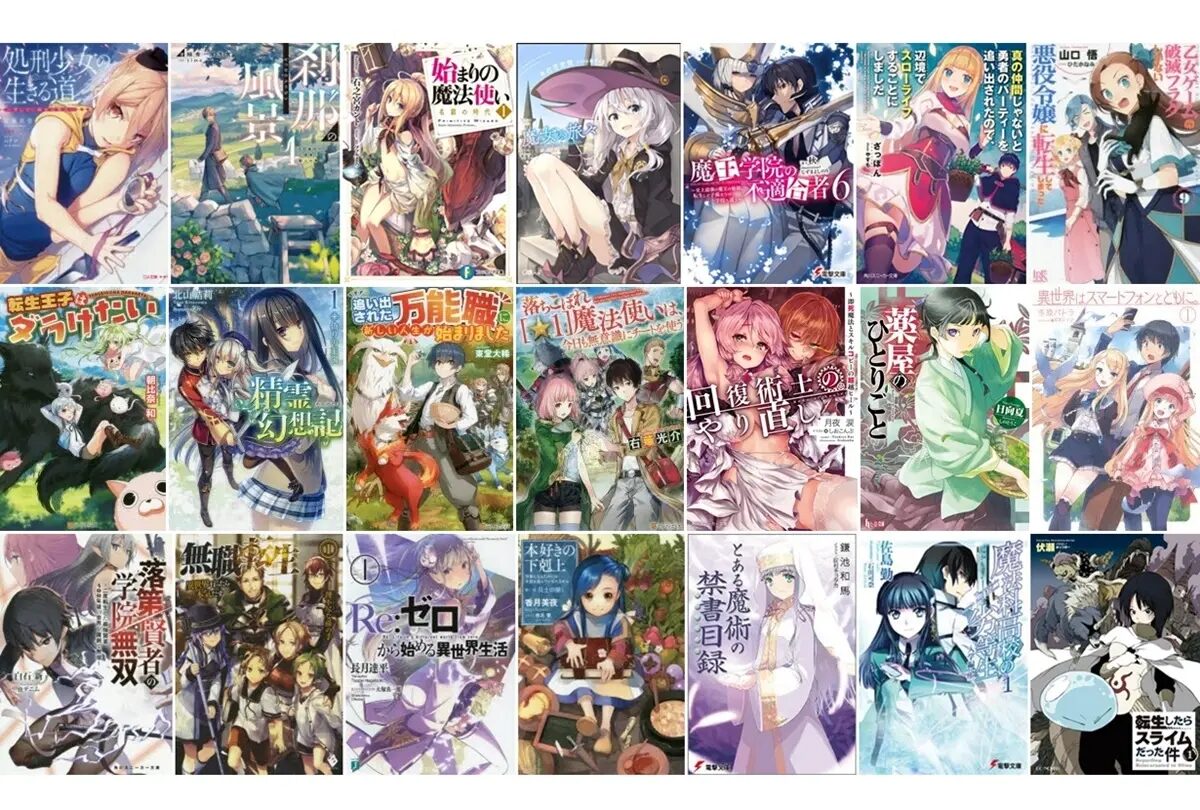





コメント